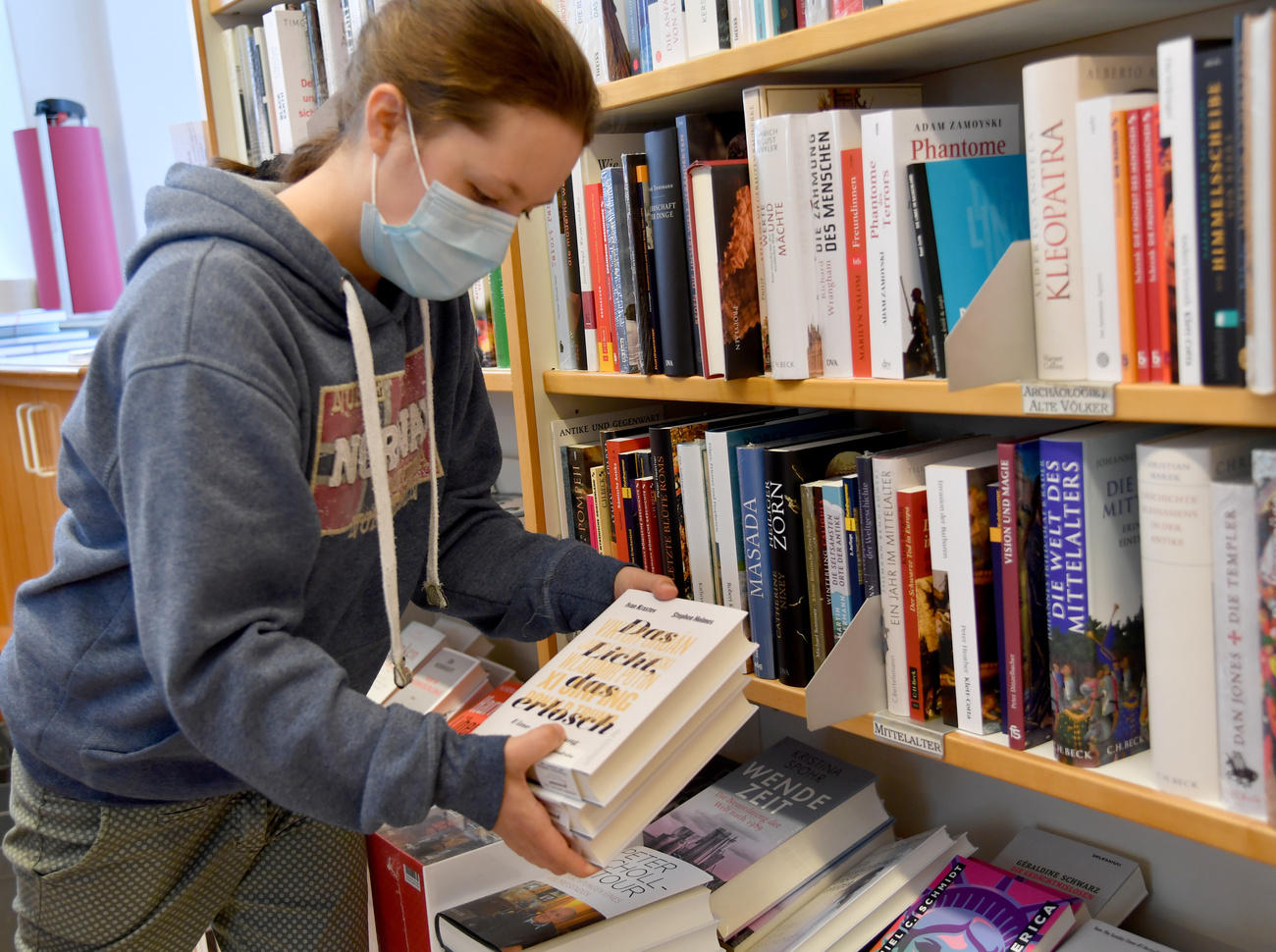
60% of Swiss support face mask regime

Three-fifths of respondents in a nationwide survey have said they are in favour of the mandatory wearing of protective masks in public in an effort to stem the spread of Covid-19.
The surveyExternal link, published on Monday by newspapers from the Tamedia group, found that the support cut right across the political spectrum.
However, it also included the caveat that such an obligation would be desirable only as soon as the equipment is available in Switzerland; at the moment, this is unclear.
Fabian Vaucher, president of the Swiss Pharmacy Association PharmasuisseExternal link, said on Monday that the supply of masks was a “catastrophe”, and that pharmacies often lacked such equipment, placing employees, clients, and patients in danger of infection.
He also criticised the lack of clarity and responsibility from federal authorities. “For weeks, our concerns have been sent around from A to B and back again,” he said. Vaucher says he wants the government to publish clear guidelines on how at-risk parts of the population can get masks.
So far, the government has not recommended that the population wear protective masks, but as the country prepares to enter a phase of lifting protective measures, which means more open shops and public spaces, the question is coming up again and again.
Nevertheless, the Tamedia survey also found a big majority (83% out of a total of 40,835 online respondents) praised the performance of the government’s handling of the coronavirus, while two-thirds were happy with the balance found between protecting public health and keeping the economy moving.
This continues a trend reported in regular opinion surveys run by the Swiss Broadcasting Corporation (swissinfo.ch’s parent company), which found just under 90% of respondents have average or above-average confidence in political leadership.
Meanwhile, just over half of Tamedia respondents were against the idea of a “herd immunity” strategy, which would see citizens become progressively infected by the virus. Three-quarters of respondents said they would support mandatory vaccination, should a vaccine be found.
Holiday disruptions
Another survey published on Monday, this time by the Lucerne University of Applied Sciences and Arts,External link found that one-third of Swiss have modified their 2020 holiday plans, either by changing destination or cancelling altogether.
However, if mountain railways begin running again, and if cross-border trips to neighbouring countries like Italy or Spain become possible again, 38% of the 1,003 people surveyed say they would go ahead with such holidays as normal.
The Swiss tourism sector, meanwhile, hopes to mitigate the damage it will suffer from the collapse in foreign visits by enticing nationally confined Swiss holidaymakers to take a trip locally.

More
Coronavirus: the situation in Switzerland

In compliance with the JTI standards
More: SWI swissinfo.ch certified by the Journalism Trust Initiative



























You can find an overview of ongoing debates with our journalists here . Please join us!
If you want to start a conversation about a topic raised in this article or want to report factual errors, email us at english@swissinfo.ch.